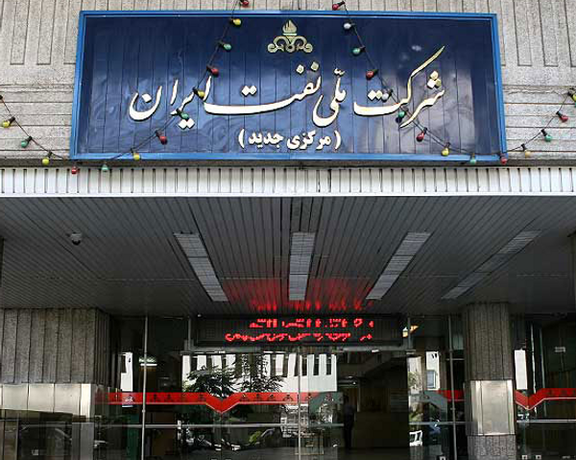Senior US Senate Commanders: We believed that 2,500 troops should remain in Afghanistan



With tension between Iran and Azerbaijan over military drills and Iranian truck-drivers’ access to Armenia, flagship Tehran newspaper sees US, Israeli and Turkish mischief.
Iran's flagship principlist newspaper Kayhan in a commentary Tuesday detected a plot against Iran and Russia hatched by the United States and Israel with the cooperation of President of Azerbaijan, Ilham Aliyev, and Turkish President Recep Tayyip Erdogan. The newspaper’s broadside came a day after Aliyev criticized Iran for holding military drills along its borders with Azerbaijan.
"Iran and Russia do not consider this a game to ignore it,” wrote Sadollah Zarei, a regular contributor to the newspaper, which is funded by the office of Supreme Leader Ali Khamenei. “They should know that 'brotherly lenience' is not a blank check given to Erdogan and Aliyev.”
Zarei warned of a "concealed alliance between the US, Turkey, Azerbaijan, Armenia and Israel" aimed at “geopolitical change with strategic consequences against Iran and Russia." Armenia and its premier, Nicol Pashinyan, he alleged, had been sucked into the conspiracy due to US and Turkish promises to allow Yerevan control of northern Karabakh in return for ceding Syunik province to Azerbaijan.
"Through expansion of secret relations with Azerbaijan and Armenia, and temporary resolution of their hostilities,” wrote Zarei, “the US is seeking to weaken the position of its two enemies, Iran and Russia, in the southern Caucasus and west of the Caspian Sea."
Fortunately, the columnist argued, Azerbaijan was merely "a cup" in comparison with "an elephant," Iran.
In an interview with Anadolou, a Turkish state news agency, published Monday, the first anniversary of the second Karabakh war with Armeniathat resulted in the return of Nagorno-Karabakh to Azerbaijan, Aliyev said he was "very surprised" by Iran holding military exercises in a border region.
“Why now, and why on our border?” Aliyev asked. “Why is this being done after we liberated these lands after 30 years of [Armenian] occupation?"
Aliyev said there was justification in Azerbaijan objecting to Iranian trucks travelling to the Karabakh region "illegally" and charging taxes for transit along the land corridor to Armenia now under Azeri control.
Tensions have high between Iran and Azerbaijan in recent weeks following Azerbaijan's arrest of Iranian truck drivers and its joint military drills with Turkey and Pakistan, which began September 12 in Baku, about 500km from the Iranian border.
In the past two weeks Iran has deployed Revolutionary Guard (IRGC) ground troops with armored vehicles, artillery, and tactical missile launchers in the northwestern border area. The authorities have not released details on the exercises but locals have posted social-media video footage of soldiers, equipment, helicopters and drones.
The Iranian ambassador to Baku, Abbas Mousavi, said Saturday that the drill had been long planned and was not a threat against Azerbaijan. Hasan Ameli, Khamenei's representative in Ardabil province, said Friday the maneuvers were a message to Israel over its relationship with Azerbaijan.
While Iran and Azerbaijan have generally had good relations in the past three decades, Azerbaijan has in recent years moved closer to Israel, a major buyer of its oil, and has reportedly granted Israel access to its airbases.

"Although the evacuation of endangered Afghans and foreign nationals from Afghanistan was a 'logistical success,' the withdrawal from Afghanistan was a 'strategic failure' that brought the Taliban to power," the Joint Chiefs of Staff told the Senate.
Mark Millie, Joint Chiefs of Staff, and Frank Mackenzie, Chief of Staff at Centcom, told Senate officials that the Taliban's rapid takeover of Afghanistan and the sudden fall of the legitimate government had taken them by surprise.

A court of arbitration has ruled against Iran over failure to supply Sharjah-based Dana Gas in a 2001 energy deal marred by a price dispute and graft allegations.
United Arab Emirates energy firm Dana Gas in a stock-market filing Tuesday to the Abu Dhabi Securities Exchange, where it is listed, said an international arbitration tribunal had awarded it $607.5 million in a gas supply dispute with the state-owned National Iranian Oil Company (NIOC).
Iranian officials have not commented on the fine over the controversial deal, which has been mired in arguments over pricing and allegations of corruption.
The damages awarded to Dana are for the first eight and a half years of the 25-year agreement signed in 2001 and due to start in 2005. Dana Gas said in its statement that a final hearing on a "much larger claim" for the outstanding 16 and a half years, 2014-2030, had been set for October 2022 in Paris with a decision due in 2023.
"The current award of US$607.5 million (AED 2.23 billion) will significantly bolster the balance sheet of Dana Gas," the statement claimed.
NIOC’s contract with Crescent Petroleum, an affiliate of Sharjah-based Dana Gas, stipulated a supply by pipeline to Sharjah over 25 years of 525 million cubic feet (15 million m3) daily of natural gas from Salman oil and gas field in the Persian Gulf, 144km south of Lavan Island. None has ever arrived.
The contract was agreed during the second term reformist president Mohammad Khatami. But the gas did not flow as agreed once the new administration of President Mahmoud Ahmadinejad, elected 2005, queried a price of $18 per 1,000 m3, or $98.5 million annually.
Critics of the deal in Tehran said Iran would lose out financially due to a low price and described the deal as corrupt.
Crescent Petroleum filed a case against NIOC in 2009 with an international court of arbitration, and in 2010 the NIOC cancelled the contract. Iran then ignored a 2013 arbitration court ruling in The Hague in 2013 that found Iran liable.
Dana Gas chief executive Patrick Allman-Ward in 2017 said the company was ready to receive the gas, and Iranian oil minister Bijan Zanganeh said Iran was ready to deliver. Iran had been under multilateral international energy sanctions from 2007 until 2015, but was then in 2018 put under US ‘maximum pressure sanctions’ that threaten punitive action against third parties dealing with the Iranian financial sector.
Behzad Ahmadinia, Cyprus-based energy reporter, told Iran International Tuesday that Iran could have gained under the 2001 deal revenue of $700 million in the first eight and a half years of the contract.
White House spokesman Jen Saki said the United States would have fought the Taliban if it had kept 2,500 troops in Afghanistan.